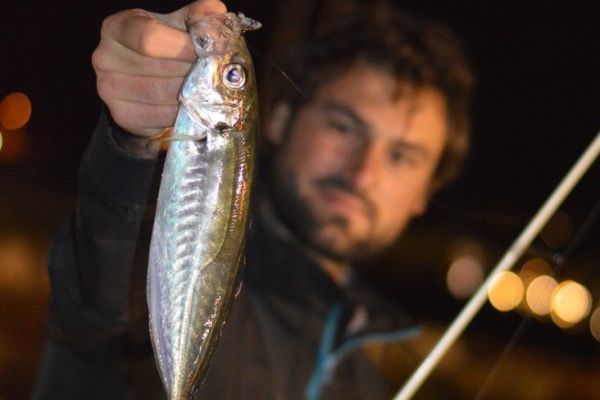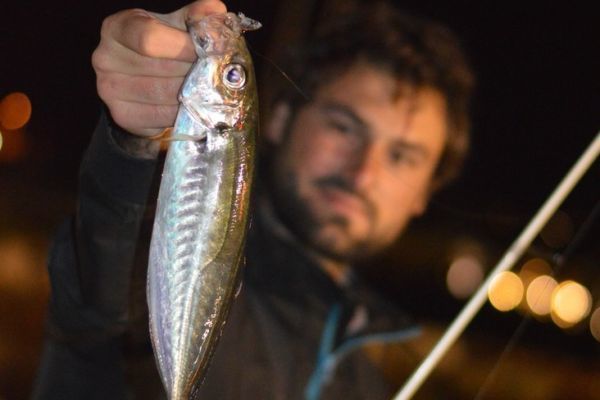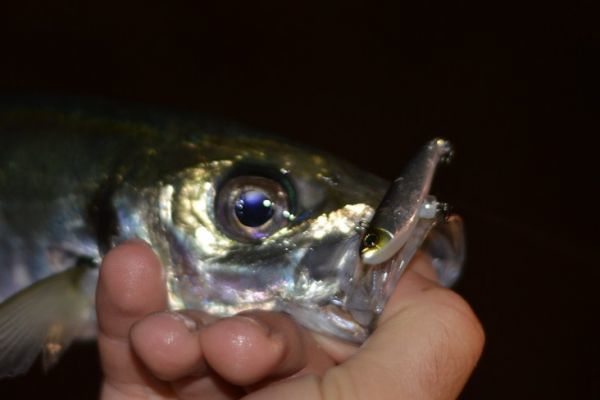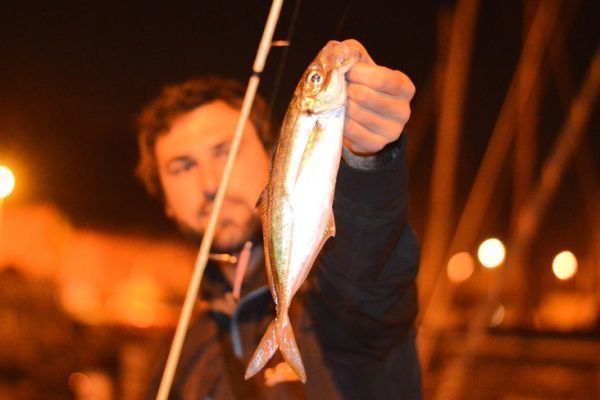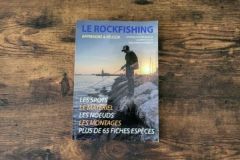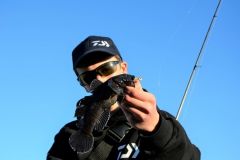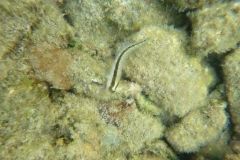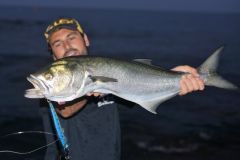Rockfishing à la Japonaise
Rockfishing is a technique that is becoming increasingly popular in France. This light sea fishing from the shore allows you to target a wide range of fish species. These are not necessarily rock fish, which is why I prefer the term "light game", the Japanese term for what we call "rockfishing". In my opinion, this term is more accurate, as it defines in two words what rockfishing really is. It's a light, subtle game with fish of any size, which can be highly technical.
The Japanese have two quite distinct approaches to the light game. One is the stalking of "Mebaru", a small rock fish resembling a scorpion fish, fished close to the bottom, and the other is the fishing of the famous "Aji", which is none other than a species of horse mackerel. The latter is fished in open water with very specific equipment. Fortunately, the Japanese way of fishing can be transposed here, and it would be a mistake to miss out on this fish, which is as technical as it is fun!
Aji fishing
Aji fishing" is very popular in Japan for many reasons. As in Japan, horse mackerel are omnipresent all year round, even in winter! This is one of the reasons why I often fish for horse mackerel during the cold months, when almost all other marine fish species shun our lures. In addition to its omnipresence and winter activity, horse mackerel is a fish that can be technical and subtle to lure, but is above all very combative.
On light tackle, it's a lot of fun and the horse mackerel provides great sensations. As mentioned above, horse mackerel is a very popular fish, and the Japanese are developing equipment (rods and lures) specifically for stalking this little carangid, so the craze is real!
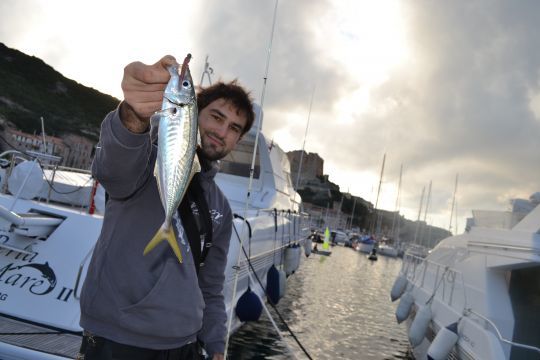
Horse mackerel habits
In France, we have two species of horse mackerel: the common horse mackerel ( Trachurus Trachurus ) and yellowtail horse mackerel ( Trachurus Mediterraneus ). We're lucky in that our horse mackerel are slightly larger than Japanese horse mackerel ( Trachurus Japonicus the famous aji...) from the land of the rising sun. Our horse mackerel can reach 50 cm in length, making it a very combative adversary.
The horse mackerel is a pelagic fish that is present all year round on our coasts, in winter as well as in summer. It is a small, gregarious carnivore, used to hunting in shoals at mouths and harbours at night. The horse mackerel has large eyes that enable it to hunt well at night. To feed, the horse mackerel almost systematically sucks in its prey with its fragile, relatively small mouth. When it hunts on the surface, you can recognize it almost immediately, as you can hear its characteristic aspirations. Horse mackerel feed on small fish, fry and crustaceans.
If you're lucky enough to lure this fabulous little fish, take all the necessary precautions: take it out of the water with a landing net and shorten its stay out of the water. Horse mackerel are difficult to handle: they're like an electric battery, constantly shaking and grunting (quite comical, by the way)! The Japanese use flat plastic tongs to grasp them, as horse mackerel, in addition to being constantly on the move, have thorny fin rays, and their sting is really unpleasant...
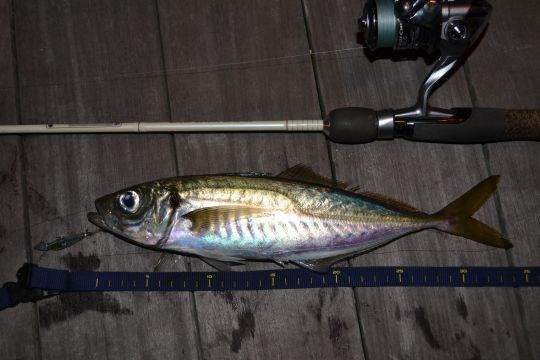
Harbour fishing
As mentioned above, horse mackerel are mainly caught in harbours. There are a number of precautions to be taken in both marinas and commercial ports, starting with the question of whether the port you wish to fish in is authorized for fishing. This is not always the case, and fishing is sometimes not tolerated within the harbor precincts. A visit to the harbor master's office is therefore essential to ensure that you can enjoy your favorite pastime, even at night. After all, it would be a shame to end a fishing trip just because you've been "kindly" asked to go fishing elsewhere... What's more, it's not very pleasant.
Once you're sure that fishing is permitted, other precautions are in order. Make sure you spot any ropes, chains or other structures in the water. If you don't, your session can quickly come to an abrupt end, as lures can get snagged and lost! Also be careful not to tempt the devil with casts that are too difficult to execute, especially near pleasure boats. It's never pleasant for a yachtsman to find hooks on his boat, and this is one of the reasons why fishing is banned in some harbours...
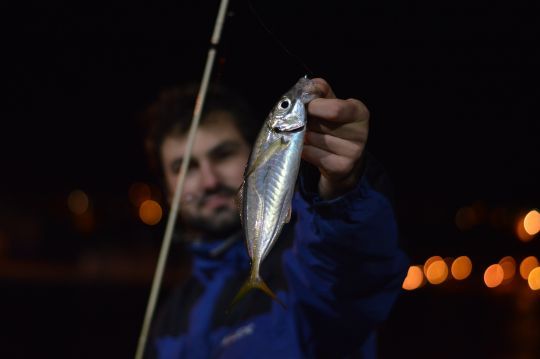
Nonetheless, harbors remain great playgrounds, with their many structures (docks, pontoons, pilings, boats...) inevitably sheltering fish. It's also a good refuge for fry and juveniles, mechanically attracting predators like horse mackerel. To catch horse mackerel, it's best to prospect under lampposts, lights and other spotlights that illuminate the water. Light attracts fish and, what's more, these illuminated areas make it easier to see your lure in action.

 /
/ 